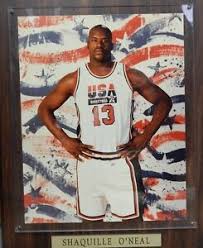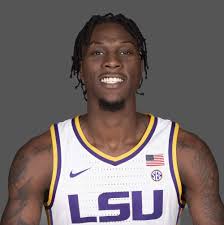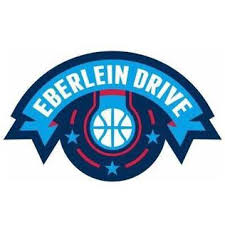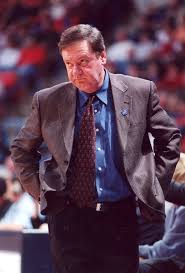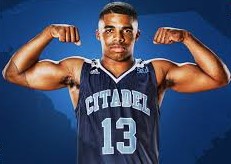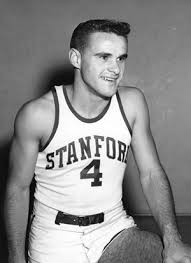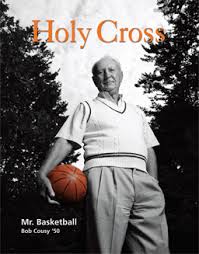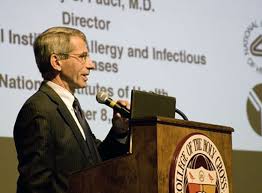The NBA Finals date back to 1947 (when they were known as the Basketball Association of America Finals) and the very 1st NCAA tourney was held in 1939. Olympic basketball competition is even older: it debuted as a demonstration event in 1904 and the men’s version became a medal sport in 1936, with the women finally getting their chance to go for the gold in 1976. The United States has dominated Olympic basketball competition from the start: the men have won 15 gold medals in the 18 tournaments they have participated in during the past 84 years, while the women have won 8 gold medals in the 10 tournaments in which they have competed during the past 44 years. Those of you who were looking forward to the 2020 Olympics opening ceremonies in Tokyo on July 24, 2020 will have to wait an extra 364 days, as the coronavirus caused a postponement until July 23, 2021. Due to the absence of college basketball since mid-March, HoopsHD’s Jon Teitel decided to fill the void by trying to interview as many prior Olympic players/coaches as possible so that you have something to read this summer while not watching the Summer Games. We continue our coverage by chatting with former LSU coach Dale Brown about his former player Shaquille O’Neal winning a gold medal in 1996. Today marks the 14th anniversary of Shaq getting 9 PTS/12 REB in a 3-PT win at Dallas in Game 6 of the 2006 NBA Finals to clinch his 4th NBA title in a 7-year span.
You 1st met Shaq when his stepfather Phillip Harrison was stationed on an Army base in West Germany: what was your 1st impression of him, and could you have ever imagined that he would eventually grow to 7’1”/330 pounds? The US planned a summer mission to send troops to the East German border and had me go out to talk to the enlisted men/officers. I finished my lecture and was eager to get home and there was this giant of a guy who was stuttering. He asked me if I could show him some exercises and I said yes. I showed him some non-resistance exercises and said I would send him a copy of our weight training program. I asked him how long he had been in the service since he was 6’9”…and he said that he was only 13 years old! He walked me over to the sauna and just as I was going to open the door his stepfather came out and was sweating profusely. I gave him my card and he looked at it with disdain: he said that he wanted his son to be educated so that he could become a military general or a bank president. About 6 weeks later Shaq wrote me a letter saying that his high school coach cut him for being too clumsy. I wondered what to say to a heartbroken 13-year old and I told him that the secret is to sincerely try to do your very best: if you never give up then God will take care of everything else. A couple of years ago he told me that he walked a mile in the snow to his mailbox, saw my letter, and decided to stick with it.
He went 68-1 record during his 2 years at Robert G. Cole High School in San Antonio, won a state title as a senior, and was the 1989 McDonald’s All-American Game MVP: how did you get him to come to Baton Rouge, and how difficult was it to recruit him? I do not know how difficult it was because he never seemed interested in any other schools. I never tried to pressure him and just told him the truth. We were filming the “Shaq and Dale” SEC Storied program with Hannah Storm a few years ago: he said that every other school was telling him that he could definitely start, and the fact that I would not do so was actually a positive.
At LSU he led the nation in REB and was named national POY in 1991, and in 1992 he led the nation in BLK: was it just a result of him being bigger/stronger than everyone else? He did not really have any moves in high school and was just a power player. He was not developing as a freshman and was struggling so I brought in Kareem Abdul-Jabbar to teach him a hook shot and brought in Bill Walton to work on his post moves/passing…and he got better and better and better. His family said that they wanted me to advise them regarding the NBA/getting an agent.
How close was he to filling the college spot on the 1992 “Dream Team”, and why did they end up choosing Christian Laettner instead of him? Laettner was probably more advanced then Shaq was at that time but we never discussed it.
After being drafted 1st overall by Orlando in 1992 he became the 1st rookie to ever be named Player of the Week during his very 1st week in the NBA, the 1st rookie to be voted an All-Star starter since Michael Jordan in 1985, and eventually 1993 NBA ROY: how was he able to come in and dominate right from the start? Some people reach their peak early but he just kept getting better with each passing day. His size/strength were the dominant factors but even in the NBA he improved as a FT shooter. I told him that I would bring in Rick Barry to work with him on underhanded shots but he said that would be embarrassing. I said that there was no way he could shoot 75 FT% during preseason practice because he was lucky if he could make 50%…and somehow he ended up making more than 75%. Most of his stats went down from college to the pros: he actually made 12-12 FTs in his final college game vs. Indiana in the 1992 NCAA tourney. We had a rule that if anyone missed class then they would have to do a 5AM workout. 1 week I told my assistant Johnny Jones that I would handle it by getting Shaq up the next day. We went down to the track and I told him that he could not miss class. He said that he could not run anymore because he was tired and I asked him where he was transferring to! He finished his freshman year with the highest GPA on the team and now has his doctorate. I am sick of hearing about coaches who buy cars for their players or change their transcripts: he is the perfect example because that kid never had a darned thing and never asked for anything. The NCAA came into his parents’ home in San Antonio to question him about his recruitment: Sergeant Harrison threw him out of his house!
He won a gold medal with team USA at the 1996 Olympics: what did it mean to him to represent his country, and what did it mean to him to win a gold medal? Knowing that his dad was a military guy I am sure that it had an extra impact. I knew that he would be successful so we tried to get him into the right things early by setting his schedule. I told him 1 day that he was so popular that he would be invited to speak to a lot of people so I had him take a speech class. He came to my office to have me critique his speech and then he asked me to attend the class: he was such a conscientious kid. He later invited me and my daughter to a speech he gave in California: he could not believe that he was getting paid 6 figures to speak! He is the Terminator on the outside and Bambi on the inside.
In 2000 he became the 3rd player to ever win NBA MVP, All-Star Game MVP, and Finals MVP in the same year (along with Willis Reed in 1970/Michael Jordan in 1996 and 1998): do you think that it reached a point between Jordan’s peak and Kobe Bryant’s peak where he became the best basketball player on the planet? I am reserved when it comes to picking the best from any era. I had a little guard on our best team ever (1981) named Ethan Martin: he would never be an NBA player but was an amazing floor leader. That being said, Shaq certainly goes down among the greatest centers of all time with guys like Wilt/Kareem/Walton/Russell.
He won 3 straight Finals MVP awards with the Lakers from 2000-2002 and won a 4th title with Miami in 2006: how was he able to play his best when it mattered the most? I went to Miami to watch them practice and sat down with Coach Pat Riley. He said that in the very 1st practice of the year Shaq put his arm around Dwyane Wade and said that Wade would be the star of the team. He said that if they all helped Wade out they would win a title…and they did.
Off the court he has released several rap albums, appeared in numerous films/reality shows, and is a studio analyst for TNT: how has he been able to follow his on-court success by becoming so successful off the court? Energy. He is a big old teenager in a lot of ways. Beyond that his benevolence is beyond imagination. The Lakers were playing in Indianapolis during the 2000 NBA Finals: I got a call from a woman whose son was in a coma due to a brain tumor and she asked if there was any way I could have Shaq call her son so that if he died he could at least hear from his hero 1 time. A couple of years later I was having dinner with Coach John Wooden and the same woman came up to our table: she said that Shaq came to the hospital, spent an hour with her son, and he eventually woke up. During Hurricane Katrina we had thousands of people dying and I read that he arranged for an 18-wheeler to drive to Louisiana so he could come in to deliver food/medicine. He just has a good heart, which he learned from his dad. They lived in meager circumstances when he was growing up and 1 day they passed a homeless man and his dad gave the man a bunch of sandwiches. I think that left an indelible impression on him.
In 2016 he was inducted into the Hall of Fame and he still ranks top-20 all-time in PTS/REB/BLK/FG%: when people look back on his career, how do you think that he should be remembered the most? We were playing scrimmages around the state when he was a freshman. Stanley Roberts dunked on him once and then made a hook over him. The 3rd time down the court Stanley made a jumper and I called a timeout and told him to play better 3/4 defense…and he asked me what that was! He was a good learner who came from a great family.

